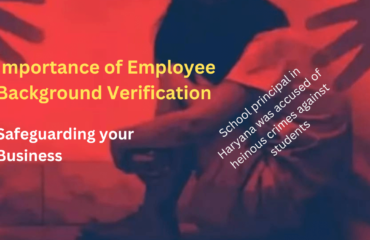In July 2024, the surge of deepfake scams in India has marked a concerning trend in cybercrime. These cases demonstrate how criminals are leveraging AI to create convincing fake videos and audio to deceive and extort individuals.
High-Profile Incidents
Retired Indian Police Services (IPS) Officer Extorted
A 76-year-old retired IPS officer, Arvind Sharma, became a victim of an extortion scam involving a deepfake video. The scammer, posing as a police officer, accused Sharma of soliciting sex online and threatened to expose him unless he paid up. Believing the threat to be real, Sharma transferred ₹74,000 before realizing it was a scam. The police have launched an investigation and are working with Meta to track the scammers.
Akshay Kumar’s Deepfake Ad
A deepfake video featuring Bollywood actor Akshay Kumar promoting a mobile game app went viral, misleading many into thinking the actor endorsed the app. Kumar’s team quickly responded, taking legal action and warning the public about the fake video. This incident underscores how celebrities can be unwittingly used in scams, causing reputational damage and misleading the public.
Mukesh Ambani’s AI Trading App
Another significant case involved a deepfake video of Mukesh Ambani, Chairman of Reliance Industries, allegedly promoting an AI trading app in partnership with Elon Musk. The video was found to be digitally manipulated, with discrepancies in lip movements and a lack of credible news reports about such a venture. The scam aimed to lure people into a fraudulent trading platform.
Broader Implications
These incidents reflect a broader trend of using deepfake technology for fraud and extortion. As these technologies become more sophisticated and accessible, the risk of such scams increases. This poses significant challenges for cybersecurity and personal privacy.
Preventive Measures Against Deepfake Scams in India
To protect against deepfake scams, individuals and organizations should take the following steps:
Verify Sources
Always cross-check the authenticity of requests for money or sensitive information, especially if they come via video calls or unexpected messages.
Be Skeptical of Urgent Requests
Scammers often create a sense of urgency to prompt quick actions without proper verification.
Educate and Inform
Stay updated on the latest scams and educate others about recognizing and avoiding such threats.
Use Detection Tools
Employ AI detection tools like Deepware and TrueMedia to verify the authenticity of videos and images.
How Premier Consultancy and Investigation Pvt. Ltd. Can Help
Premier Consultancy and Investigation Pvt. Ltd. specializes in providing comprehensive risk management and investigative services tailored to the needs of mid- to large corporations and ultra-high-networth individuals (UHNIs/HNIs). With the rise of sophisticated cyber threats like deepfake scams, our expertise becomes invaluable in safeguarding your interests.
Services Offered
Cybersecurity Audits and Training
We conduct thorough cybersecurity audits and provide training to help your organization identify and mitigate vulnerabilities, ensuring you are prepared to counter deepfake and other cyber threats.
Deepfake Detection and Analysis
Utilizing state-of-the-art AI tools, we offer deepfake detection services to verify the authenticity of suspicious videos and communications, protecting you from potential scams.
Fraud Investigation and Prevention
Our team of experienced investigators can swiftly respond to incidents of fraud, conducting comprehensive investigations to uncover the perpetrators and prevent future occurrences.
Personalized Protection Plans
For ultra-high-networth For high-net-worth individuals, we provide personalized protection plans that include monitoring and mitigating digital threats, ensuring your personal and financial security.
Crisis Management
In the event of a cyberattack or scam, our crisis management services provide immediate support to contain the situation, minimize damage, and restore normal operations.
By partnering with Premier Consultancy and Investigation Pvt. Ltd., you can leverage our expertise to protect your assets and reputation in an increasingly digital world.
Conclusion
The rise of deepfake scams in India is a pressing concern that requires collective awareness and proactive measures. By staying informed and vigilant, individuals can better protect themselves from falling prey to such sophisticated cybercrimes.
For more detailed information on these incidents, you can refer to the original articles on Hindustan Times, DNP India, and Newschecker mentioned in the References section.
FAQ on Deep Fake Scams
Q1: What is deepfake technology?
Deepfake technology uses artificial intelligence to create realistic images, videos, and audio of real people. This technology can manipulate videos to make it appear that someone is saying or doing something they never did.
Q2: How are deepfakes used in scams?
Scammers use deepfake technology to create convincing videos or audio clips of trusted individuals, such as colleagues, celebrities, or officials. These fakes are then used to deceive victims into transferring money, sharing sensitive information, or taking other actions under false pretenses.
Q3: What are some recent examples of deepfake scams in India?
Recent examples include a retired IPS officer being extorted through a deepfake video of a fake police officer, a viral deepfake ad featuring Bollywood actor Akshay Kumar, and a manipulated video of Mukesh Ambani promoting a fake AI trading app.
Q4: How can I protect myself from deepfake scams?
- Verify Sources: Always verify the identity of the person making a request through a different communication channel.
- Be Skeptical of Urgent Requests: Scammers often create a sense of urgency to bypass rational thinking.
- Educate Yourself: Stay informed about the latest scams and how to recognize them.
- Use Security Features: Employ multi-factor authentication and other security measures to protect your accounts.
Q5: What should I do if I suspect a deepfake scam?
If you suspect you are a target of a deepfake scam, do not comply with any requests. Verify the person’s identity through other means, report the incident to the relevant authorities, and inform your bank or financial institution if money is involved.




